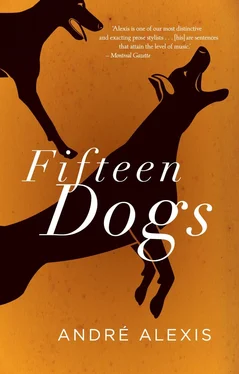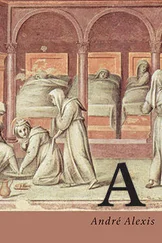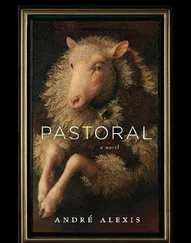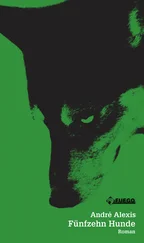In other circumstances, Benjy and Dougie would have ganged up on the pink-tongued hysterics and broken their necks for them. It was clear from the old woman’s behaviour, however, that she actually valued the cats. She cleaned up their feces (which, as it happened, tasted very good), groomed them, purred at them or with them as if she were an oversized moggie herself. It was easy to see that if they hurt any of her furry charges she would throw them out. So, when the cats were most annoying — mincing about like legislators — he and Dougie permitted themselves only the quietest of growls, intimate warnings that the cats resolutely ignored.
The woman herself was a more complicated irritant. She was human. So, she could be manipulated in a number of ways the small dogs had mastered. When they were hungry, they rolled onto their backs for her or stood up on their hind legs, a thing she seemed to particularly enjoy. She was inexplicably delighted by certain things but just as inexplicably horrified by others. She petted them and made high-pitched sounds when they jumped into the bed beside her or licked her face, but she would lower her voice and squirt them with water if she caught them licking their own or each other’s genitals. She would offer them food whenever they turned on the television for her, but she could not stand to see them eat the cats’ droppings.
Her unpredictable likes and dislikes were not the worst of her. The worst of her was her clinginess. The two had encountered this particular fetish before, of course. Both knew what it was like to have a human hold you for too long: the suffocation, the back-cracking struggle to get away. But the woman seemed to have some need to crush them. She held them tight no matter how they squirmed.
One day, Dougie asked
— Do you think she could kill us when she squeezes?
Benjy found it troubling that he could not answer one way or the other. He had no idea if the old lady was a hazard, no way of knowing. And it seemed unwise to depend on the restraint of a being one did not know. On top of that, there was the feeling that accompanied the crush. It was as if the woman were trying to instill something in them or to communicate a thought. Gradually, over the last of winter and the beginning of spring, she became unbearable. By the first warm days, Benjy and Dougie found themselves again dreaming of escape; this, despite the food and shelter the woman provided.
Dougie first spoke of his desire to leave, on an evening when the world smelled again of things expunged by winter: muck, greenery, rotten food and shit. He and Benjy were in the woman’s yard, lying on the warm patio stones. Dougie had had enough of the old woman and of the cats who polluted her den.
— This is not where I want to be, he said.
— Where will you go if you leave? asked Benjy.
— I want to go where we were, he answered. These creatures are making me unhappy and the human will break me, I’m certain of it.
— It would be dangerous to go back, said Benjy.
— The leader is a true dog, said Dougie. He will teach us how to be true dogs again.
— Going back is an idea that is not good, but I do not want to stay here on my own.
— Then come with me. The world is warm. We can live with our pack, as we were meant to.
Dougie had apparently forgotten the abuse and the humiliations they had suffered. He’d forgotten how frightened they’d been, had forgotten how violent and unpredictable the pack could be. Benjy shared his longing for the company of their pack, but he could not see any profit in a return. He saw only danger and, ever practical, he thought first of what was good for him. As clingy as the old woman was, there had to be alternatives to returning to the coppice.
— Why not find another human? he asked.
— No, Dougie answered. Why change one master for another?
— Their homes are different, said Benjy. They smell different. I believe they are different. We may find one who has none of these ugly creatures with them.
— We are from the same pack, said Dougie. I know what you are saying, but my thinking is not like yours. We have a home elsewhere. I want to go back. We can look for another place, if the pack is still strange.
Dougie would not be dissuaded. He no longer wished to live with this human or these cats. His spirit would not allow it. A few days after their talk, he precipitated their ouster from the old woman’s house. His behaviour would have terrible consequences, it’s true, but Benjy would not blame his friend for the events that followed their ouster. He could not. In fact, by the time he told all this to Majnoun, he’d convinced himself that Dougie had been considerate when he’d got them both thrown out of the house. ‘Considerate,’ in that his actions forced Benjy to reconsider where and how he wanted to live, forcing on him the unexpected dignity of a choice.
First, however, the ouster: Benjy had always been an excellent hunter. He could sniff out rats, knew how to kill them and, from time to time, enjoyed eating them. They were not his preferred meal, so he did not kill them unless he was hungry. Dougie, on the other hand, was a masterful hunter and enjoyed killing rats and mice for the sport. It was, simply, Dougie’s way, and Benjy thought nothing of it. That is, he thought nothing of it until Dougie cornered and killed one of the woman’s cats.
It happened in a moment that left Benjy feeling profoundly ambivalent. They had been lying together, he and Dougie, in the kitchen, when one of the cats came in and went for its bowl of water. Without warning, Dougie struck. (How fast he was, and how wonderful!) The cat, its reflexes almost as impressive as Dougie’s, tried to jump out of Dougie’s way, jumping straight up and screeching for its life. To no avail. It was trapped in a narrow vee where the side of a cupboard met a wall. It tried to jump a second time, but it had no chance. Anticipating its desperate movements, avoiding its claws, Dougie darted in, bit the cat’s neck and shook it as if it were a plush toy until it stopped wriggling and hung limply in his mouth.
What pleasure it must have given Dougie to do this, thought Benjy. (He judged Dougie’s pleasure from the pleasure the spectacle had given him .) The sound alone had been arousing: the screeches that were the cat’s last pleas, the struggle of the thing in Dougie’s mouth as he knocked it against the wall and sunk his teeth in deeper, breaking it almost in two, it seemed, as he shook its corpse. Benjy felt a deep satisfaction at the creature’s demise. Dougie had killed one of the haughtiest of the cats, one that hissed and arched its back when either of the dogs was close to its prized possessions: a pink ball of wool, a wicker basket lined with a pink blanket. They had often entertained each other with talk of how they would, someday, bite it to death. That day had come and it was good.
If Benjy had killed the creature, he would have left its body in the kitchen and retired to some other part of the house. He would not have hidden, exactly, but he would not have wanted to be associated with its death. Dougie, however, took the corpse upstairs to the human’s bedroom, the cat’s head knocking against the struts of the bannister. Benjy did not follow him up. He waited in the living room and listened. He did not have to wait for long, nor did he have to listen intently. He heard Dougie’s nails on the hardwood. There was a momentary silence and then the woman began to wail. A further moment passed and, as the woman cried, evidently upset about the cat, Dougie descended the stairs, unhurried, almost thoughtfully.
— What happened? asked Benjy.
— I do not know, answered Dougie. I put the creature down beside her and then she began to make noise.
Читать дальше












